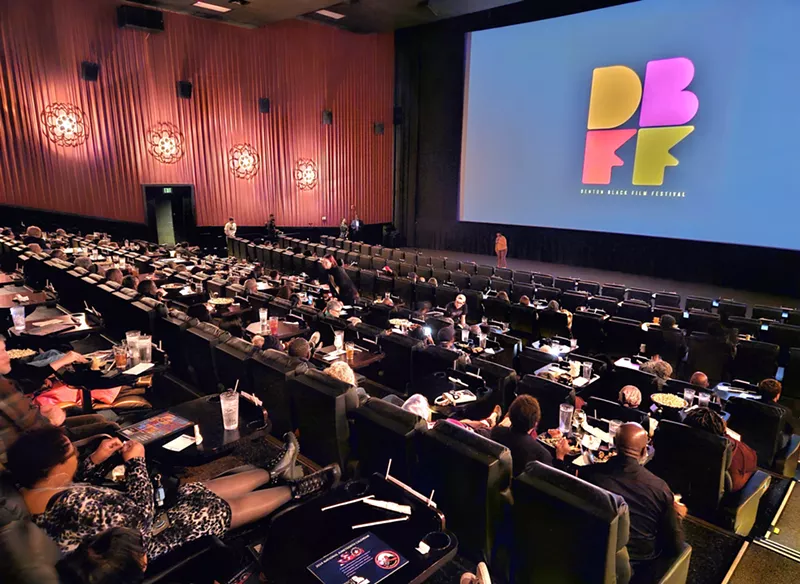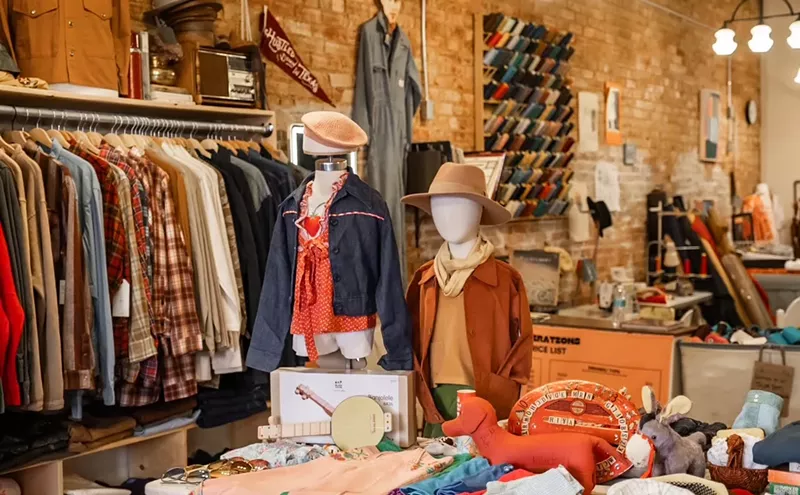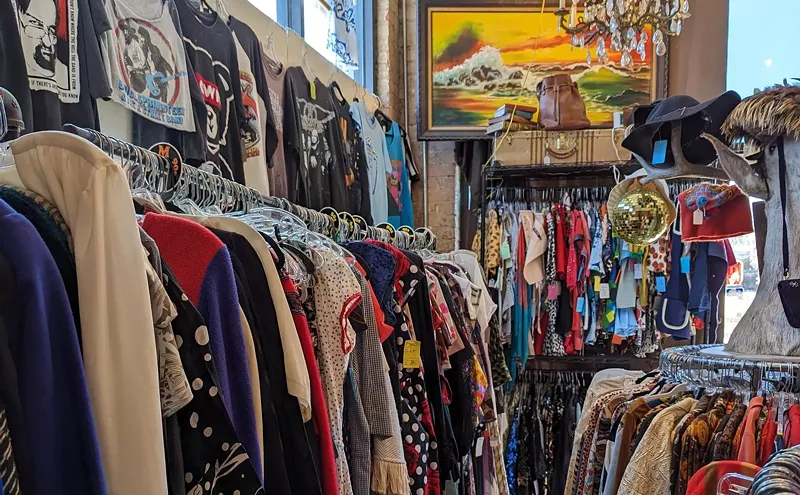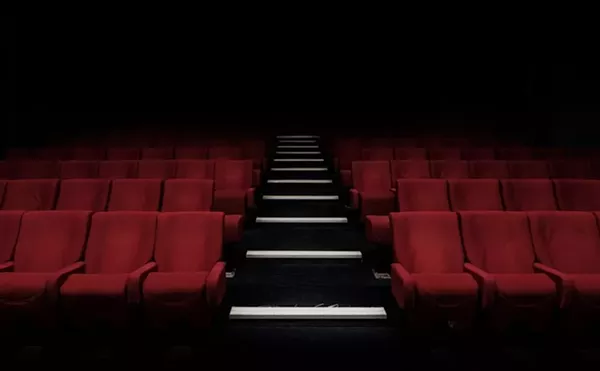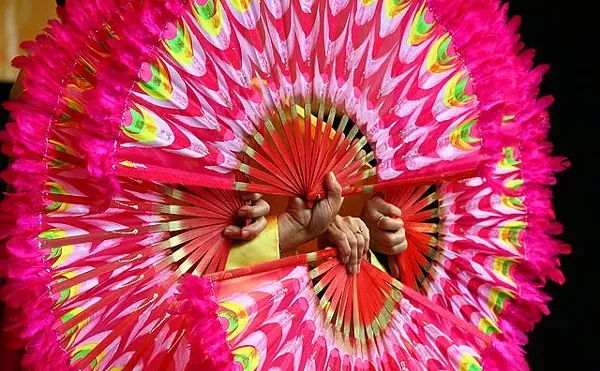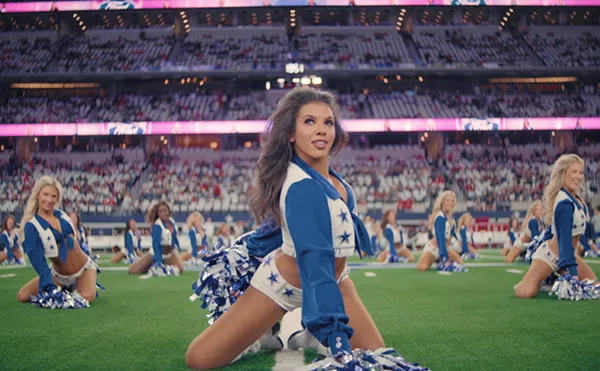It’s no secret that North Texas has become an epicenter for film culture. The area has been growing in stature thanks to the abundance of arthouse theater chains and speciality events.
Festivals are often the best way to celebrate the totality of the industry, and DFW is set to get a major expansion this year now that the Dallas International Film Festival has reached Oscar-qualifying status. One event that has steadily been growing in prominence is the Denton Black Film Festival, which is set to have its biggest year ever in 2025.
First held in 2013, the Denton Black Film Festival was created by Harry Harry, president of the Denton African American Scholarship Foundation. He reached out to longtime Denton community residents Cheylon Brown and Mesha George about starting a festival intended to support Black artists and showcase their contributions to cinema. Although there are countless great films released each year from Black storytellers, they are often underserved by major studios; 2013 was followed by two years of the #OscarsSoWhite backlash, as well as revelations about racist comments made by high-ranking studio executives.
What initially was conceived as a local event intended to attract students from the nearby University of North Texas and Texas Woman's University, became an instant sensation that attracted over 800 attendees for a day and a half. It was evident that the opportunity had the potential to expand, and the second year of the festival included spoken word, comedy, painting, sculpture and other forms of art. Cinema may be its foundation, but the Denton Black Film Festival has become one of the region’s most integral cultural events.
The original goal may have been to attract attention from local artists, but the Denton Black Film Festival began making an impact on the industry at large. Notable alumni have produced celebrated work: Jared Couch’s short film Meta Care earned an Emmy Award, and the work of the artist Nitashia Johnson was put on display in the Carver Museum in Austin. As exciting as it is to see the broad influence that it has had, the festival has never failed to remember its local roots. Targeted campaigns such as the “Stories of Justice” endeavor were able to bring to life important historical details regarding the grassroots activist movements of the 1960s and 1970s, which share more than a few comparisons to the public protests and justice movements of today.
Remembering the achievements of the past, celebrating the artists who work so hard today and offering inspiration for the next generation of storytellers are critical to the beliefs of the Denton Black Film Festival. This year’s lineup is an embodiment of these goals, as the festival contains workshops with accomplished documentarians, panels on topics such as trafficking and the use of artificial intelligence, and live readings of short screenplays. The line between activism and artistry is often perceived as far wider than it is; as the Denton Film Festival frequently has proven, those with a passion for changing the world usually have pretty good instincts on how to express themselves within creative fields.
Cinephiles who attend this year’s events will be treated to some extraordinary opportunities to see projects that aren’t widely available to the public yet. The acclaimed documentary Bastards of Soul debuted to a rapturous response when it premiered at DIFF last year at The Texas Theatre, and it will screen again at the Campus Theater on Jan. 26. The intimate window into the trajectory of the NorthTexas band of the same name holds considerable emotional power due to the unexpected death of frontman Chadwick Murray, as the film offers rare footage of some of his last recordings. As much as it serves as a memorial for a beloved local artist who left us far too soon, Bastards of Soul also offers access to tremendous music that is sure to leave audiences feeling good.
Festivals are often determined by the debuts they're able to land, but the Denton Black Film Festival has also shown reverence for past works. One of the most anticipated events of 2025 is a screening of the classic political thriller The Spook Who Sat by the Door, which was preserved by the Film Foundation and added to the National Registry by the Library of Congress in 2012 due to its historical significance. Based on the novel of the same name by Sam Greenlee, it follows the story of the first Black CIA agent, who ends up staging a political revolution in Chicago by amassing a contingency of “freedom fighters.”
By combining the political satire of Dr. Strangelove, or How I Learned to Stop Worrying and Love The Bomb with the anxiety-inducing paranoia of conspiracy thrillers like The Parallax View, The Spook Who Sat by the Door was a work of cinema that most critics didn’t know how to process when it debuted in 1973. Although a film that paid so much attention to the Black Power movement was never going to be fully appreciated by the film industry at the time (which was even more exclusively white than it is today), The Spook has since been heralded as a cult classic.
Although the depiction of both Black resistance and the CIA has been hotly debated, the Denton Black Film Festival will allow these conversations to be held respectfully; the screening is followed by a Q&A session with Doris Nomathandé Dixon (daughter of director Ivan Dixon) and Natiki Hope Pressley (daughter of writer/screenwriter Sam Greenlee). This is not the only event at this year’s festival that allows for audience participation, as there are several nights dedicated to community conversations.
The Denton Black Film Festival has the uncomfortable burden of being one of the first major film events to begin in the aftermath of the January inauguration, which is certain to make conversations about U.S. race relations more hostile. Although 2024 was a year that saw the release of many excellent Black-produced films (Nickel Boys, Sing Sing, Hard Truths, Exhibiting Forgiveness), there was also a reminder that the industry’s diversity issue is not anywhere close to being fixed. By participating in a festival that celebrates cultural progress, attendees of the Denton Black Film Festival may find their sense of hope rejuvenated.

Audio By Carbonatix
[
{
"name": "GPT - Billboard - Slot Inline - Content - Labeled - No Desktop",
"component": "21721571",
"insertPoint": "2",
"requiredCountToDisplay": "2"
},{
"name": "STN Player - Float - Mobile Only ",
"component": "21861991",
"insertPoint": "2",
"requiredCountToDisplay": "2"
},{
"name": "Editor Picks",
"component": "17105533",
"insertPoint": "4",
"requiredCountToDisplay": "1"
},{
"name": "Inline Links",
"component": "18349797",
"insertPoint": "8th",
"startingPoint": 8,
"requiredCountToDisplay": "7",
"maxInsertions": 25
},{
"name": "GPT - 2x Rectangles Desktop, Tower on Mobile - Labeled",
"component": "22608066",
"insertPoint": "8th",
"startingPoint": 8,
"requiredCountToDisplay": "7",
"maxInsertions": 25
},{
"name": "Inline Links",
"component": "18349797",
"insertPoint": "8th",
"startingPoint": 12,
"requiredCountToDisplay": "11",
"maxInsertions": 25
},{
"name": "GPT - Leaderboard to Tower - Slot Auto-select - Labeled",
"component": "17357520",
"insertPoint": "8th",
"startingPoint": 12,
"requiredCountToDisplay": "11",
"maxInsertions": 25
}
]

